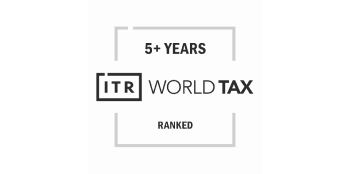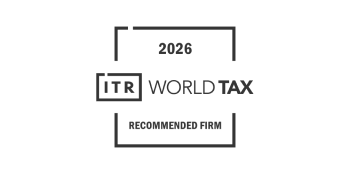


A decree amending, adding, and repealing various provisions of the Customs Law was published in the Federal Official Gazzette. The Congress of the Union approved this decree, which will enter into force on January 1, 2026, except for certain provisions with specific effective dates.
The reform aims to strengthen control, traceability, and oversight of foreign trade operations, while more clearly defining the responsibilities of the parties involved. Key changes include expanded requirements for the electronic customs file, new obligations and liability rules for customs brokers and agencies, the mandatory incorporation of the CFDI with the Carta Porte supplement, and broader powers for the revocation of authorizations and concessions.
These measures increase administrative burdens and heighten audit risks for importers, exporters, and companies with complex logistics operations.
Update of Definitions and Legal Framework. Key concepts such as “customs regime,” “equivalent document,” and “tariff deferral programs” are incorporated and clarified. The supplementary application of the Federal Tax Code is recognized.
Digitalization and Technological Control. Implementation of integrated technological systems for inventory control, video surveillance, traceability, and real-time monitoring in customs and bonded warehouses is required, with interoperability with the electronic customs system and remote access for authorities.
Joint Liability and Obligations of Customs Brokers. The joint liability of customs brokers and agencies is reinforced, making them responsible for the payment of foreign trade taxes, compensatory fees, and the accuracy of the information provided. Specific grounds for the suspension and cancellation of licenses and authorizations are established, including penalties for omissions, false declarations, and recurrences.
Transformation of the Licensing and Authorization Regime. Customs broker licenses and agency authorizations will have a validity of twenty years, extendable for an equal period, subject to requirements and procedures determined by the Tax Administration Service (SAT) and the Customs Council. Triennial certification is required for customs brokers.
Automation and Electronic File. Permanent automation of inventory control systems and the integration of electronic files that include tax documentation, payment receipts, contracts, and other elements supporting foreign trade operations are required.
New Guarantee Requirements. Obligations are established to guarantee through deposits in customs accounts or letters of credit in cases of definitive importation with values lower than the estimated price, internal or international transit, and the introduction of goods to strategic customs-controlled areas.
Modifications to Customs Regimes. The periods of stay for certain goods under temporary importation are extended (up to five or ten years for vessels, aircraft, containers, and railway equipment), and petroleum products are excluded from temporary regimes and strategic customs-controlled areas.
Simplified Procedures and Courier Companies. Simplified customs clearance for passengers and courier and parcel companies is regulated, establishing authorization requirements, risk analysis systems, and online access for the authority. Specific penalties for non-compliance are foreseen.
Control and Penalties in Customs-Controlled Areas. The requirements for concessions and authorizations in customs-controlled areas are detailed, including bidding, economic solvency, technical capacity, and tax compliance. Procedures for the destruction, donation, or allocation of seized or abandoned goods are established.
Administrative Procedures and Penalties. The catalog of infractions and fines is expanded, with penalties proportional to the value of the goods and the omitted contributions. Specific fines are foreseen for non-compliance with non-tariff regulations, simplified procedures, and document submission obligations.
Patents and authorizations in force before the reform will be adjusted to the new validity of twenty years.
The Federal Executive and the Ministry of Finance and Public Credit must issue guidelines and amend the Customs Law Regulations within specified timeframes.
Technological agreements must be signed within 180 days.
The reform seeks to strengthen traceability, security, and control in customs operations, increase the responsibility of the parties involved, and modernize procedures through digitalization and automation. Companies and operators must review their internal processes, technological systems, and compliance frameworks to adapt to the new requirements and avoid penalties.
At Mijares, Angoitia, Cortés y Fuentes, we assist our clients in accurately identifying the impacts of the reform on their foreign trade operations and in developing the strategies necessary to adapt their processes, systems, and internal controls to the new regulatory framework. Our team advises on the efficient implementation of the amended obligations and on mitigating the operational, tax, and administrative risks arising from the changes to the Customs Law.
For any questions or comments, you can contact our expert team.
Awards














